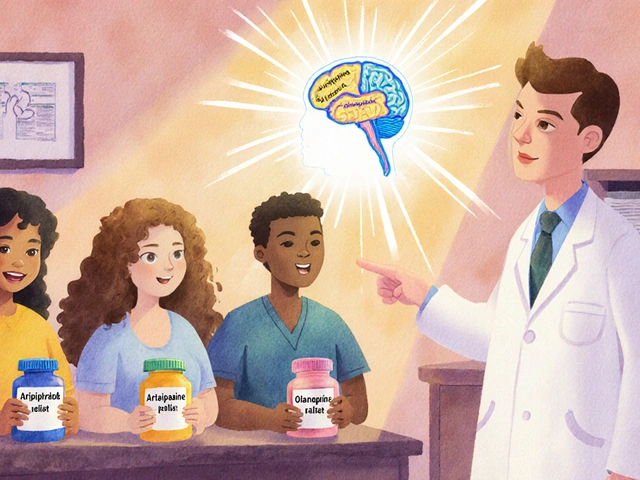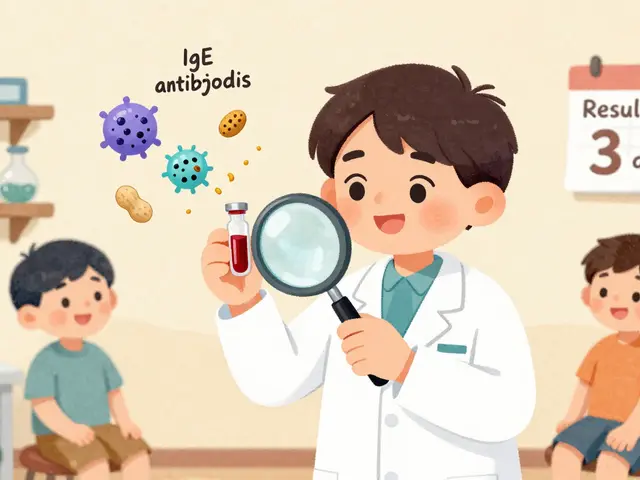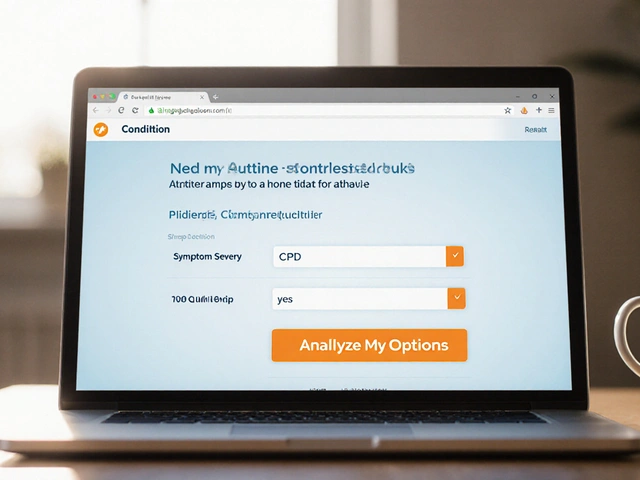Mental health medications: practical guide for patients and caregivers
One in five adults uses a psychiatric medicine at some point. That sounds huge because it is—mental health meds are common, useful, and sometimes confusing. This page breaks down what these medicines do, how to choose one safely, and simple steps to get better results without guesswork.
Types and how they work
Antidepressants (SSRIs, SNRIs, atypicals) lift mood by changing brain chemicals like serotonin or norepinephrine. Antipsychotics help with hallucinations, delusions, and severe mood swings by blocking certain dopamine receptors. Mood stabilizers (lithium, valproate) even out extreme highs and lows. Anxiolytics, including benzodiazepines, calm panic and severe anxiety quickly but can be habit-forming. Stimulants treat ADHD by boosting focus and alertness. Each class targets different symptoms, so your doctor matches the medicine to the problem—not the label.
Start smart: what to ask and expect
Before you start a medication, ask: What symptom is this for? How long before it helps? What side effects should I watch for? Are there interactions with other drugs or supplements I take? Also ask about monitoring—blood tests or follow-up visits—so you know the plan. Most antidepressants need 4–8 weeks to show real benefit; antipsychotic effects can appear faster for acute symptoms but often need weeks to settle the right dose.
Side effects vary: nausea, sleep changes, sexual side effects, weight shifts, or tremor. For many people, side effects fade after a few weeks. If they don't, tell your prescriber—there are often alternatives or dose adjustments that help.
Medication interactions are real. Combining certain meds can raise heart risk, cause severe drowsiness, or reduce effectiveness. Keep a current list of everything you take (prescription, OTC, supplements) and share it with every clinician or pharmacist you see.
Thinking about buying meds online? Use only reputable pharmacies that ask for a valid prescription and show real contact info. Our site covers safe online pharmacy tips and red flags—avoid sites that sell controlled drugs without prescriptions or that hide licensing info.
Adherence matters. Take your dose the same time every day, use reminders, and don’t stop abruptly unless your provider tells you to—some meds need a taper to avoid withdrawal. If cost is an issue, ask about generics, patient assistance programs, or prescription savings tools you can use at the pharmacy.
Watch for warning signs: new or worsening suicidal thoughts, sudden mood shifts, breathing problems, severe allergic reactions, or unexplained fevers. If any of these happen, get urgent help. For everyday concerns—ask your prescriber or pharmacist first.
Pair meds with basics that help: regular sleep, small exercise habits, steady meals, and talk therapy when possible. Meds change brain chemistry; lifestyle and therapy shape behavior and coping. Together they often work better than either alone.
If you want, check our linked articles on specific drugs, safety tips for buying online, and alternatives to common meds. Use them to make clearer choices and to ask smarter questions at your next appointment.
17
8 Alternatives to Duloxetine: What Works, What Doesn’t, and What to Watch Out For
Searching for a Duloxetine alternative? This article breaks down 8 real options for people dealing with depression, anxiety, or chronic pain. Get the pros, cons, and unique facts about each alternative—no sugarcoating, just practical info. Learn which drugs might fit your life better and what to expect if you switch. If you're curious about side effects, effectiveness, or weird insurance hoops, you'll find the details here.
Latest Posts
Popular Posts
-
 OTC Heartburn Medications: Antacids, H2 Blockers & PPIs Explained
OTC Heartburn Medications: Antacids, H2 Blockers & PPIs Explained
-
 Meniere’s Diet: How Sodium Restriction and Fluid Balance Reduce Vertigo and Hearing Loss
Meniere’s Diet: How Sodium Restriction and Fluid Balance Reduce Vertigo and Hearing Loss
-
 Extended Use Dates: How the FDA Extends Drug Expiration Dates During Shortages
Extended Use Dates: How the FDA Extends Drug Expiration Dates During Shortages
-
 Magnesium Supplements and Osteoporosis Medications: What You Need to Know About Timing
Magnesium Supplements and Osteoporosis Medications: What You Need to Know About Timing



